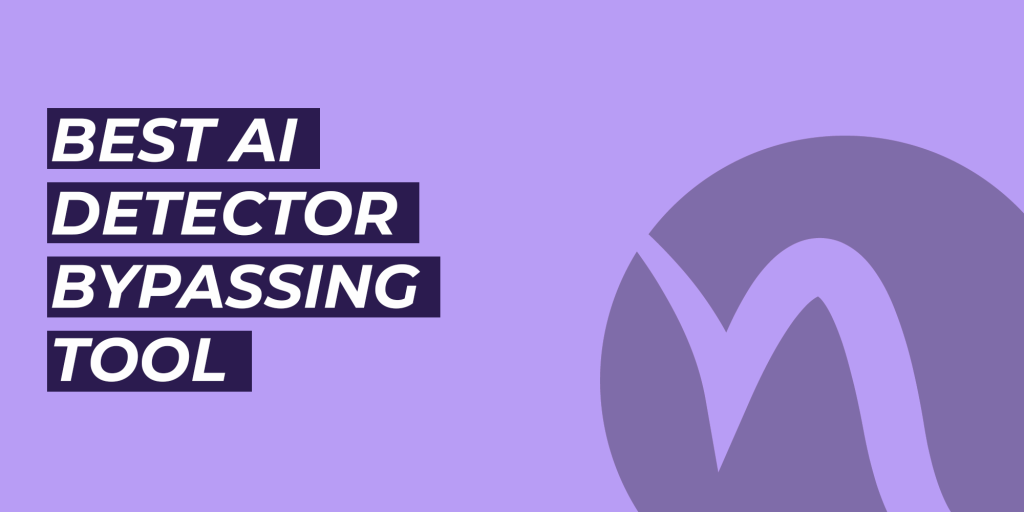
Advanced Techniques for Detecting and Avoiding AI-Generated Content
In today's digital age, how can professors detect ai-generated content has become a pressing question. With the advent of advanced AI writing tools, detecting AI-generated text is increasingly challenging. Netus.ai offers a suite of tools and techniques to help identify and avoid AI-generated content, ensuring academic integrity and the authenticity of student work.
Challenges in Detecting AI-Generated Content
As AI models become more sophisticated, they can mimic human writing styles with greater accuracy. This evolution makes it difficult for educators to distinguish between student-generated and AI-generated content. Familiarity with a student's writing style can sometimes help, but even experienced teachers find it challenging as AI technology improves. The Netus AI paraphrasing tool is an example of how AI can produce text that closely resembles human writing, further complicating detection efforts.
AI Detection Tools
Various tools have been developed to detect AI-generated content. These tools analyze patterns in language, sentence structure, and consistency. For instance, tools like GPTZero use machine learning to differentiate between human and AI-generated text. However, these tools are not foolproof and can sometimes produce false positives. The Netus AI paraphrasing tool enhances this capability by providing advanced detection features.
Netus.ai’s detection tools focus on the intricacies of writing styles and linguistic patterns to identify potential AI-generated text. These tools help maintain academic integrity by flagging suspicious content for further review.
Academic Integrity and AI Writing
The rise of AI writing tools poses significant concerns about academic integrity. Educators are encouraged to use AI detectors alongside traditional plagiarism detection software to ensure the authenticity of student work. It is crucial to educate students about the ethical use of AI and the importance of original writing. The Netus AI paraphrasing tool plays a critical role in this effort by helping educators detect AI-generated content while promoting ethical writing practices.
AI-generated text often lacks the nuances, emotional depth, and variability seen in human writing. It tends to be more formulaic, repetitive, and consistent in tone and style. Recognizing these characteristics can help in identifying AI-generated content.
Tools and Solutions from Netus.ai
Netus.ai offers a range of tools designed to address the challenges of detecting AI-generated content. One such tool is Undetectable AI, which modifies AI-generated text to make it sound more human. This tool adjusts writing to different styles and reading levels, making it harder for detection tools to identify the content as AI-generated.
The Netus AI summarization model is another powerful tool, designed to help users quickly extract the most important information from a piece of text. It condenses long documents into shorter, more manageable summaries, making it ideal for content curation, research, and information management.
Netus.ai also provides a sophisticated Netus AI paraphrasing model, which helps rephrase text while preserving its original meaning. This model is trained on vast amounts of data, allowing it to understand language nuances and produce undetectable rephrasings of text.
Netus.ai Paraphrasing Models
Netus.ai offers several paraphrasing models tailored to different needs:
- C7-N1: Focuses on active language and grammar variations to produce natural-sounding text.
- G9-R1: Uses nine language techniques to avoid AI detection and ensure natural sentence structures.
- V7-N2: Prioritizes synonym substitution and sentence restructuring for plagiarism-free content.
- A12-AD: Employs twelve parameters to avoid common patterns and ensure high readability and quality.
These models provide flexible solutions for creating unique, high-quality content that is difficult for detection tools to identify as AI-generated.
Ensuring Academic Integrity with Netus.ai
Netus.ai’s tools are essential for maintaining academic integrity in an era of advanced AI writing technologies. By providing educators with robust detection tools and students with resources to understand the ethical use of AI, Netus.ai supports the creation of original, authentic content.
Educators can leverage Netus.ai’s tools to differentiate between human and AI-generated writing, ensuring that student work remains genuine and credible. The comprehensive suite of tools offered by Netus.ai, including the Netus AI paraphrasing tool, helps both educators and students navigate the complexities of AI in writing.
In conclusion, understanding what do professors use to check for AI is critical in maintaining academic standards. Netus.ai offers innovative solutions to detect and avoid AI-generated content, supporting the integrity and authenticity of academic work. For more detailed strategies and tools, visit the Netus.ai website.